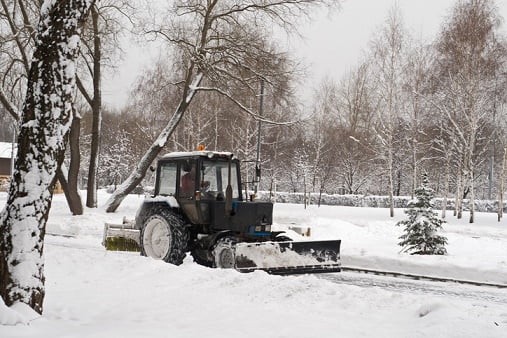
A good friend recently brought to my attention the story of the “Tractor Will.” In 1948, a man in Saskatchewan carved out his will in the fender of a tractor using a pocket knife. According to witnesses, Cecil George Harris was trapped underneath his tractor for over 10 hours during a winter storm. His short but succinct will read:
“In case I die in this mess, I leave all to the wife.” He did in fact die later that night from injuries sustained during the storm.
A judge ordered that the piece of fender with his will be cut from the tractor and brought into court. The piece still hangs in the law library of the University of Saskatchewan Law School.
According to Calgary attorney Geoff Ellwand, who has written a book on the unusual will, the will was accepted by the courts “without a blink.”
If the will had been written in California today, would it still be accepted by the courts?
There are two important aspects to this question. First, the will Mr. Harris left is considered a “holographic will.” A holographic will is one that is either handwritten or orally spoken. For a holographic will to be valid in California, in general it must meet one of two conditions:
1. It is in the handwriting of the testator (person making it), and is also signed by that person.
2. If it is not in the handwriting of the testator, there must be at least two witnesses.
The carved will was not signed nor witnessed (not to mention the handwriting aspect), so would it still be valid?
Potentially.
After setting forth the legal requirements for a holographic will, California also allows for “extrinsic evidence” to be considered by the courts in determining the validity of a will. “Extrinsic” essentially means any evidence that exists outside of the actual will. This would allow a present day court in California to consider the following:
a) Mr. Harris knew death was a possibility as he was trapped for a substantial period of time in severe weather conditions.
b) Mr. Harris had a pocket knife on his person.
c) The carving was located within a reasonable distance to where he was trapped.
d) No one knew of a carving existing on the tractor prior to that day.
Thus, it would be reasonable to presume that a court in California today, in the absence of another will or estate planning document, would rule the will valid.
Now, here’s the catch: Had Mr. Harris been married in California under average circumstances (ie no extraordinary wealth or substantial property prior to the marriage), everything he owned would go to his wife upon his death – regardless of whether or not he made a will to that effect. Of course, I can’t speak to Canadian probate laws of the late 1940’s – perhaps in his time, Mr. Harris’s carving made all the difference for his widow.
In my personal practice as a Trust and Estate attorney in California, I have seen quite a few holographic wills. I even have a case currently that revolves around an oral will. But I have yet to come across a carved will of any kind. If I do (and let’s hope I do) – I will be the first to let you know what the courts say.
For questions about wills, trusts, and other probate issues, call my Walnut Creek Trust and Estate Law Firm at 925-322-1795.

I think your story has it wrong, Harris died on June 9th not in a winter storm.